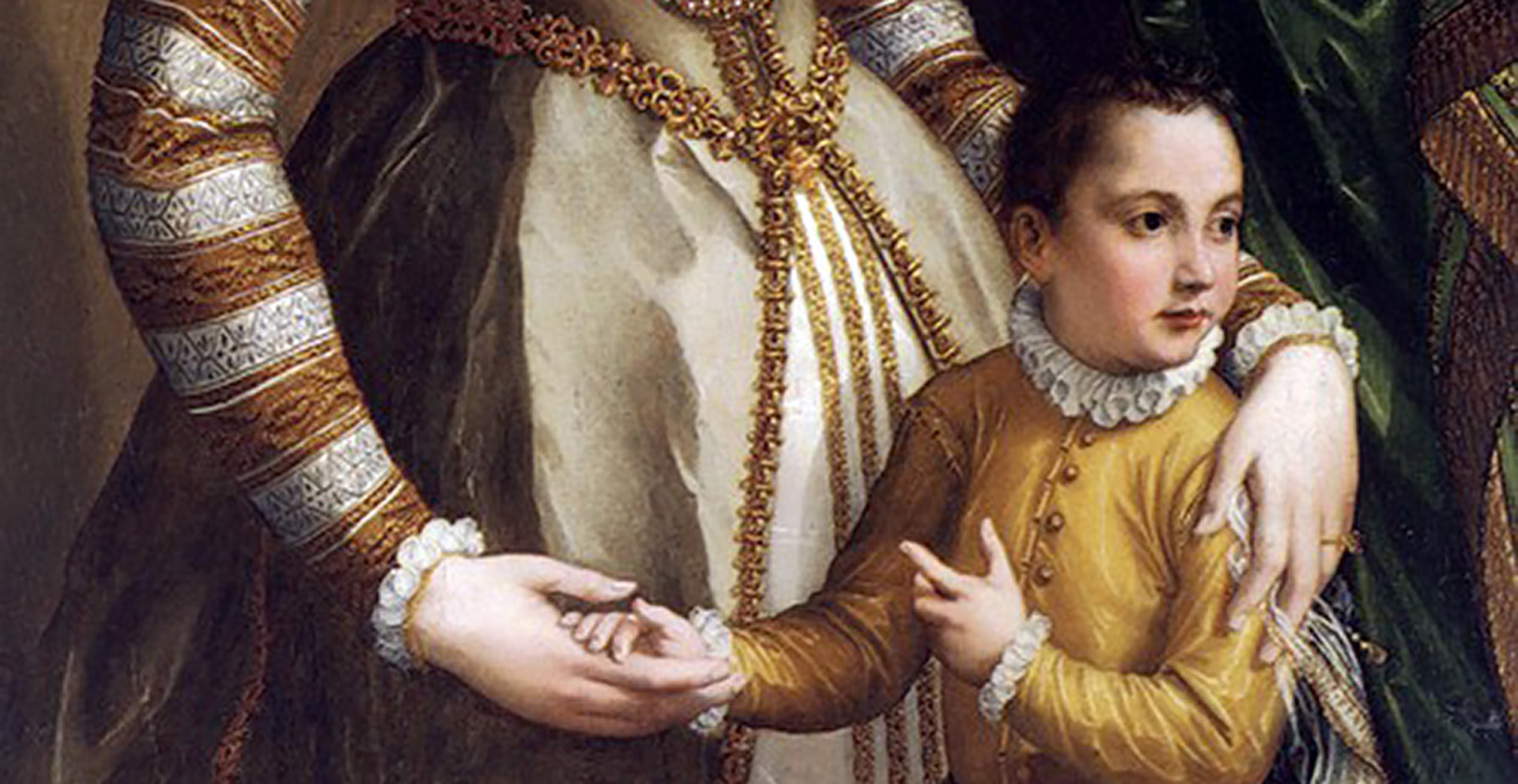Wit, beauty and talent made her conspicuous among all the women of the day, and she captivated every heart except her husband’s. Speaking Spanish, French and Latin fluently, a perfect musician, singing beautifully, a poetess and improvvisatrice by nature, Isabella was the soul of all around her, and the fairest star of the Medici.

Isabella’s passion, literary criticism and philology, came to the fore, and her giftedness and erudition in music and languages was acclaimed. She principally devoted herself to preserving original writings and codifying the speech and grammar of the Tuscan vernacular. This gave her an authoritative role as leader of a widely respected literary circle. Her salon drew statesmen, magistrates, and rhetoricians from the courts of Ferrara and Spain; churchmen (including Vincenzo Borghini and Simone da Fortuna of the Florentine Academy); ambassadors from the court of Urbino, humanists and philosophers such as Pier Vettori; and philologists of repute such as Lionardo Salviati and Giovan Battista Deti. Satellites drawn to her also included poets, musicians, and artists of note. The sculptor Giambologna, Francesco’s favourite architects Bernardo Buontalenti and Bartolomeo Ammannati, and Allori were included. Even the absent had enthusiastic support – at Isabella’s salon, a revised version of Torquato Tasso’s Gerusalemme Liberata was recited to invite judgement for the poet’s enlightenment before its completion in 1575.

